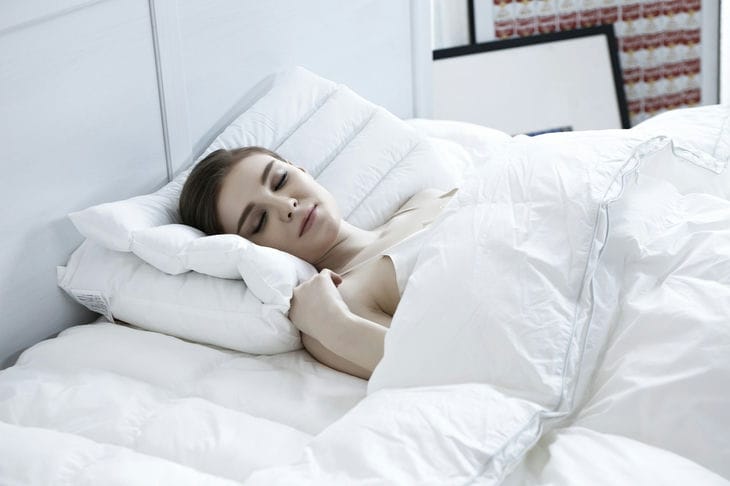When night has come and sleep does not come, it is worth using proven methods for falling asleep quickly.
The right approach will help you relax and find long-awaited rest.
Creating a comfortable atmosphere
In order for sleep to come faster, it is necessary to provide comfortable conditions in the bedroom. Optimal air temperature plays an important role in this process.
It is recommended to maintain it at 18-20 degrees. Overheating or hypothermia can cause anxiety and difficulty falling asleep.
Another important aspect is silence and darkness. Loud sounds, bright light from street lamps or gadget screens can disrupt the processes responsible for falling asleep.

To minimize the impact of external irritants, you can use thick curtains, a sleep mask, and earplugs. Such measures will help create ideal conditions for rest.
Relaxation before sleep
Relaxation is the key to falling asleep quickly. Before going to bed, it is worth spending time on quiet activities.
For example, you can try light stretching or breathing exercises. Deep and slow breathing helps calm the nervous system and prepare the body for rest.
A warm bath or shower also helps to relax muscles and create a comfortable mood. Water helps to relieve tension accumulated during the day and prepare the body for a night's rest.
Additionally, aromatherapy using lavender or chamomile essential oils can enhance the relaxation effect.
The ability to turn off thoughts
Falling asleep quickly is often prevented by a stream of thoughts that are difficult to stop. In order to cope with this, you can use simple techniques.
One effective method is the "4-7-8" method. It consists of inhaling through the nose for 4 seconds, holding the breath for 7 seconds, and exhaling slowly through the mouth for 8 seconds. This technique helps to calm the nervous system and reduce stress levels.
Another way is visualization. Imagining calm places, such as a beach or a forest glade, helps you to escape from everyday worries and focus on pleasant images. This helps you fall asleep faster and improves the quality of your sleep.
Avoiding stimulants before bed
Certain foods and drinks can negatively affect the process of falling asleep. Caffeine, found in coffee, tea, and chocolate, stimulates the nervous system and can interfere with rapid sleep.
It is recommended to avoid caffeine 6 hours before bedtime. The same rule applies to nicotine.
The evening meal should also be light and balanced. Overeating or eating heavy food before bed can lead to discomfort and sleep disturbance. It is better to give preference to light snacks, such as yogurt or banana, which contain tryptophan, which promotes the synthesis of the sleep hormone melatonin.
Sleep and wake up mode
A regular sleep schedule helps the body get used to a certain time of falling asleep and waking up.
Keeping a consistent sleep schedule strengthens your biological clock and makes it easier to fall asleep. Even on weekends, it is recommended to go to bed and wake up at the same time to maintain a stable rhythm.
If insomnia becomes a frequent occurrence, it is important not to dwell on it. It is important to try to relax and not worry about the fact that sleep does not come right away.
Instead of lying there and wondering how to fall asleep, it's better to get up and do something calm, like reading a book in soft light. Returning to bed after a short break will help you fall asleep faster.
Physical activity during the day
Regular exercise has a positive effect on sleep quality. However, it is important to remember that intense exercise before bedtime can have the opposite effect.
It is best to exercise in the first half of the day or at least 3-4 hours before bed.
Moderate physical activity, such as walking in the fresh air, yoga or swimming, helps improve overall well-being and health, which in turn has a positive effect on the quality of sleep.








